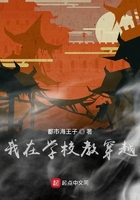This system of government is a very ****** one and consist in maintaining the subject population in a state of extreme helplessness and of extreme terror. To this end, it is disarmed;[115] it is kept under surveillance ; all action in common is prohibited ; its eyes should always be directed to the up-lifted ax and to the prison doors always open ; it is ruined and decimated. - For the past six months all these rigors are decreed and applied, -- disarmament of "suspects," taxes on the rich, the maximum against traders, requisitions on land-owners, wholesale arrests, rapid executions of sentences, arbitrary penalties of death, and publicized, multiplied tortures. For the past six months, all sorts of executive instruments are set up and put into operation: The Committee of Public Safety, the Committee of General Security, ambulating proconsuls with full power, local committees authorized to tax and imprison at will, a revolutionary army, a revolutionary tribunal. But, for lack of internal harmony and of central impulsion, the machine only half works, the power not being sufficient and its action not sufficiently sweeping and universal.
"You are too remote from the conspiracies against you," says St.
Just;[116] "it is essential that the sword of the law should everywhere be rapidly brandished and your arm be everywhere present to arrest crime..... The ministers confess that, beyond their first and second subordinates, they find nothing but inertia and indifference."-- "A similar apathy is found in all the government agents," adds Billaud-Varennes;[117] "the secondary authorities which are the strong points of the Revolution serve only to impede it." Decrees, transmitted through administrative channels, arrive slowly and are indolently applied. "You are missing that co-active force which is the principle of being, of action, of execution. . . . Every good government should possess a center of willpower and the levers connected with it. . . . Every government activity should exclusively originate from the central source." -"In ordinary governments," says Couthon, finally,[118] "the right of electing belongs to the people; you cannot take it away from them. In extraordinary governments all impulsion must come from the center; it is from the convention that elections must issue. . . . You would injure the people by confiding the election of officials to them, because you would expose them to electing men that would betray them."-- The result is that the constitutional maxims of 1789 give way to radically opposed maxims ; instead of subjecting the government to the people, the people is made subject to the government. The hierarchy of the ancient régime is re-established under revolutionary terms, and henceforth all powers, much more formidable than those of the ancient régime, cease to be delegated from the depths to the summit and will henceforth instead be delegated from the summit to the bottom.
At the summit, a committee of twelve members, similar to the former royal council, exercises collective royalty ; nominally, authority is divided amongst the twelve; it is, in practice, concentrated in a few hands. Several members occupy only a subaltern position, and amongst these, Barère, who, official secretary and mouthpiece, is always ready to make a speech or draft an editorial; others, with special functions, Jean Bon St. André, Lindet, and above all, Prieur de la C?te d'Or and Carnot, confine themselves each to his particular department, navy, war, supplies, with blank signatures, for which they give in return their signatures to the political leaders; the latter, called "the statesmen," Robespierre, Couthon, Saint-Just, Collot d'Herbois, Billaud-Varennes, are the real rulers providing overall direction. It is true that their mandate has to be renewed monthly;but this is a certainty, for, in the present state of the Convention, its vote, required beforehand, becomes an almost vain formality. More submissive than the parliament of Louis XIV., the Convention adopts, without discussion, the decrees which the Committee of Public Safety present to it ready made. It is no more than a registry-office, and scarcely that, for it has relinquished its right of appointing its own committees, that office being assigned to the Committee of Public Safety; it votes as a whole all lists of names which the Committee send in.[119] Naturally, none but the creatures of the latter and the faithful are inscribed; thus, the whole legislative and parliamentary power belongs to it. -- As to executive and administrative power, the ministers have become mere clerks of the Committee of Public Safety;"they come every day at specified hours to receive its orders and acts;[120] "they submit to it "the list with explanations, of all the agents" sent into the departments and abroad ; they refer to it every minute detail; they are its scribes, merely its puppets, so insignificant that they finally lose their title, and for the "Commission on External Relations" a former school-master is taken, an inept clubbist, bar-fly and the pillar of the billiard-room, scarcely able to read the documents brought to him to sign in the café where he passes his days.[121] -- Thus is the second power in the State converted by the Committee into a squad of domestics, while the foremost one is converted into an audience of claqueurs.















